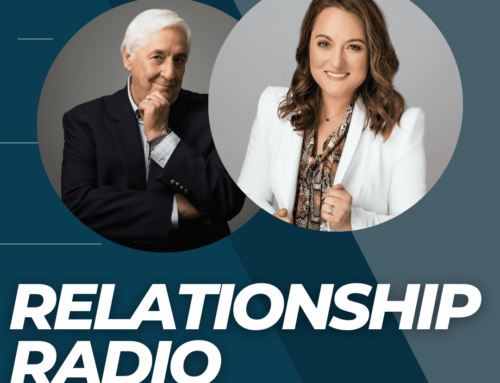Once a cheater, always a cheater. Is that true or false? How do you forgive a cheating spouse? That one question alone opens the door to a floodgate of emotions and leaves us questioning what went wrong for this to happen. People feel hurt by different things. Sometimes it’s internal, damage from the past, resentment, a loss of affection, and more. When we express those pains, we take it out on our spouse with anger or shutting down and silencing ourselves to the people we love most.
Other times, we end up falling into the affections of another outside of our marriage and wind up having an affair. People cheat for numerous reasons. Attention, ego, feeling unloved, a lifestyle desire, etc., but the real question is, how do you come to terms with your spouse’s affairs, and how do you forgive a cheater? Today’s article touches on how to deal with the pains of an affair, figure out forgiveness, learn to reconcile, and most importantly, how to forgive a cheating spouse.
Why Would I Ever Forgive My Spouse That Had an Affair?
Why would you? They hurt you and betrayed everything your marriage stood for? When people are hurt, they get angry and start seeing their spouse as this horrible person who doesn’t deserve forgiveness. The reason why people cheat is due to a missing void within themselves. The relationship is a part of that, but there is an emptiness inside them. Emotionally, mentally, physically, or all three. They are trying to make up for something that isn’t there. Understanding that void comes down to you and your spouse taking the time to sort through your issues.
You can do this through counseling services or community support from people facing similar issues. The first step to forgiving a cheating spouse is to embrace the pain. Bottling your emotions prevents you from dealing with your feelings head-on. It creates this rain cloud, placing stress on your mind and body. To move forward with your spouse, you have to accept what happened and feel your feelings. We don’t mean to feel your feelings for years on-end. Allow yourself to be vulnerable and feel the hurt so you can move past it one day.
The Three Parts to Decision-Based Forgiveness to Forgive a Cheating Spouse
Decision-based forgiveness is a model that teaches forgiveness based on 3 points:
- Letting go of negative responses
- Replacing adverse reactions with compassionate ones
- A process that happens over time
Letting Go of Negative Responses:
Decision-based forgiveness (DBF) is based on the idea of letting go of resentment and vengeful feelings. Vengeful feelings like wanting your spouse to hurt as much as you do or getting revenge on your spouse in some form. In this model, forgiveness is a choice to let go and willingly be a considerate person, even if you feel justified not to.
Replacing Negative Reactions With Compassionate Ones:
The second half replaces negative emotions about seeing your spouse as a flawed person instead of a bad one. Part two of DBF is about emotional forgiveness and expressing empathy to your spouse. Your spouse did a bad thing, but that doesn’t mean they are a terrible person.
They probably feel a mix of guilt and shame for their actions wishing they could take it all back. Instead of getting angry, empathize with your spouse as a flawed person and see their wrongs from their viewpoint. This level of thinking allows us to release the emotional pain weighing us down.
A Process That Happens Over Time:
Lastly, understanding that forgiveness is a test of time. You can’t let go of everything at once. It’s a slippery slope uphill that will have many setbacks. Once you decide to follow these steps of forgiveness, many emotional health benefits lie ahead. Try not to categorize your spouse as this evil person.
Your thoughts become real, which will lead your relationship down this path of believing whatever your spouse is doing is a form of evil intent. The same goes for your emotions. If you lead with significantly negative emotions, you lose control of making proper decisions. Take a deep breath, clear your mind, and try to react to your spouse through a compassionate outlook.
Reconciling and Rebuilding Trust With Your Spouse
We discussed how to forgive a cheating spouse in a few ways. Forgiveness lies within yourself and your ability to choose to forgive your spouse. The next stage is reconciling and finding ways to trust them again. Like we said before, it takes two to fix a marriage. For the one that feels betrayed, it’s about feeling but ultimately moving past the pain to forgive your spouse.
For the cheater, it’s about making your spouse feel safe again. Taking accountability for your actions is the next step to rebuilding trust and forgiveness. Letting go of the affair, stopping all forms of contact, and demonstrating to your spouse that you are all in for making your marriage work. Rebuilding is also about sacrifice. By sacrifice, we mean sacrificing the past and focusing on the future. This involves empathizing, showing compassion, and agreeing to prevent the cheating from happening again.
Learn How to Forgive A Cheating Spouse With Marriage Helper
Forgiveness is hard, but holding onto hate is harder. Both parties need to understand each other for the healing to begin. Whether it’s exercising kindness toward your spouse’s betrayal or expressing accountability, it takes two people to save a marriage. Come to a consensus on rebuilding trust that both parties can agree on. Remember that forgiveness is the best thing to do, even if you think you should. Choosing to see the other person as flawed and not evil lays the foundation for putting the marriage back together. At Marriage Helper, we have helped reconcile thousands of marriages over the past decade. From our workshops, podcasts, and open coaching sessions, we believe we can help save your marriage. Contact us online for more information or to place a call to one of our representatives.




